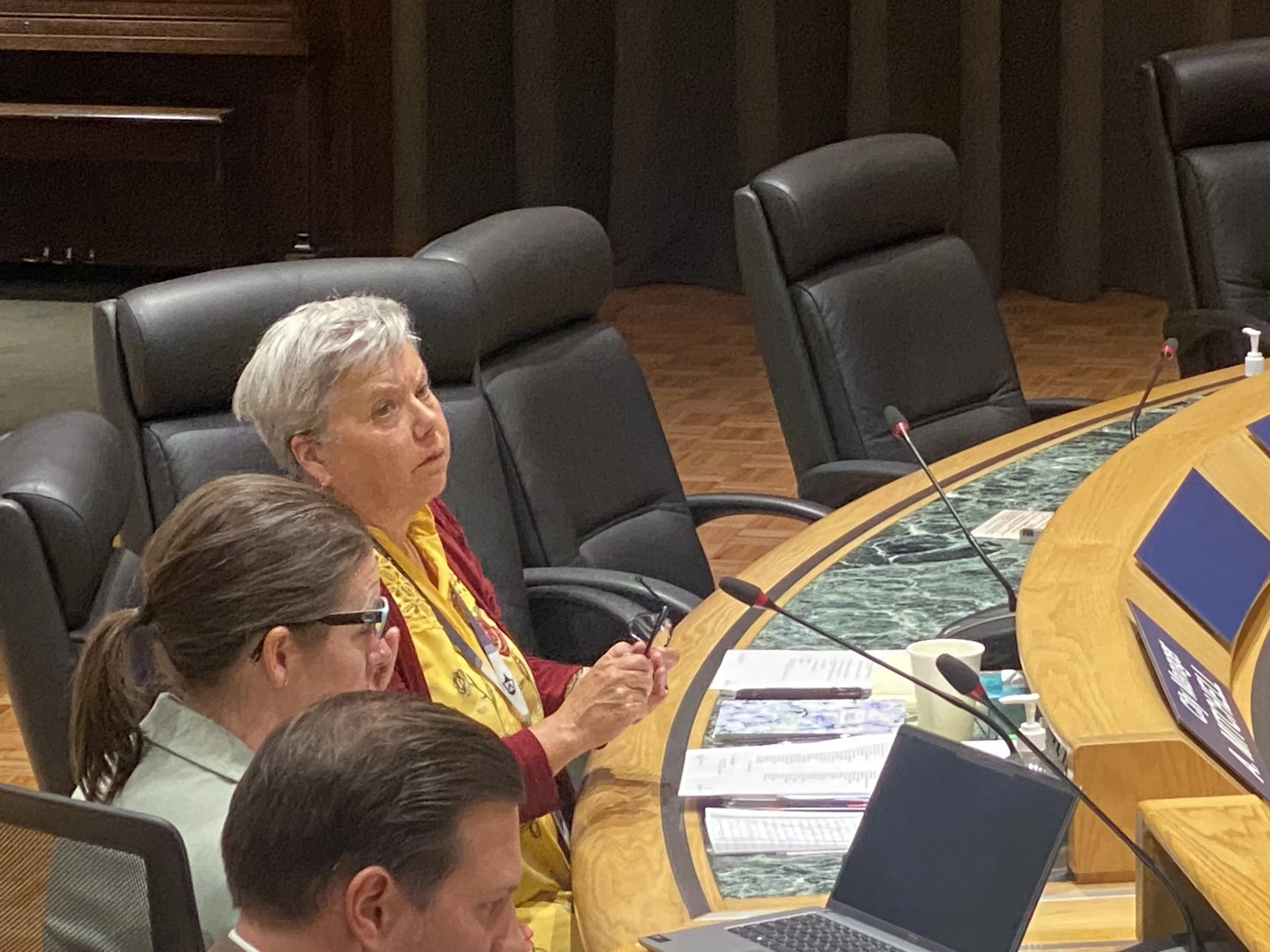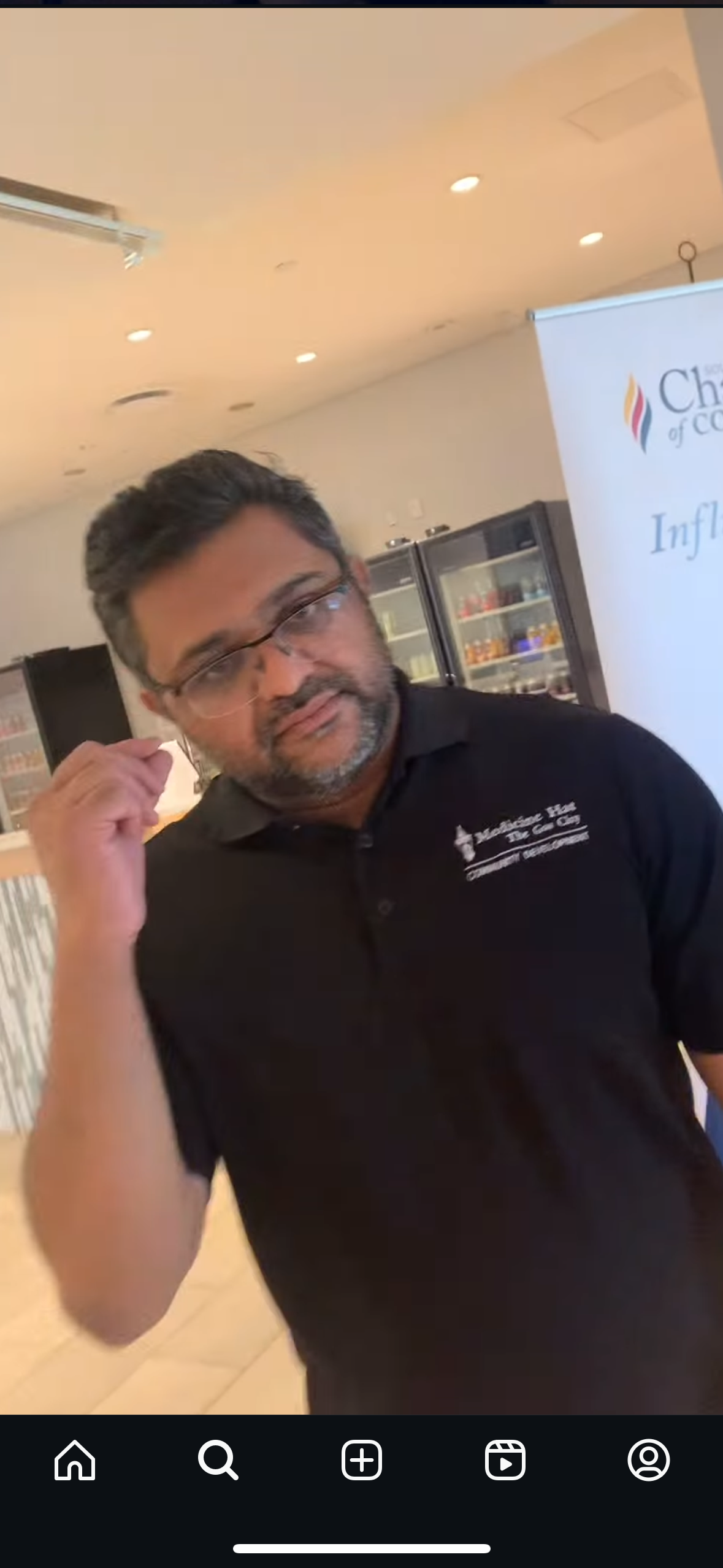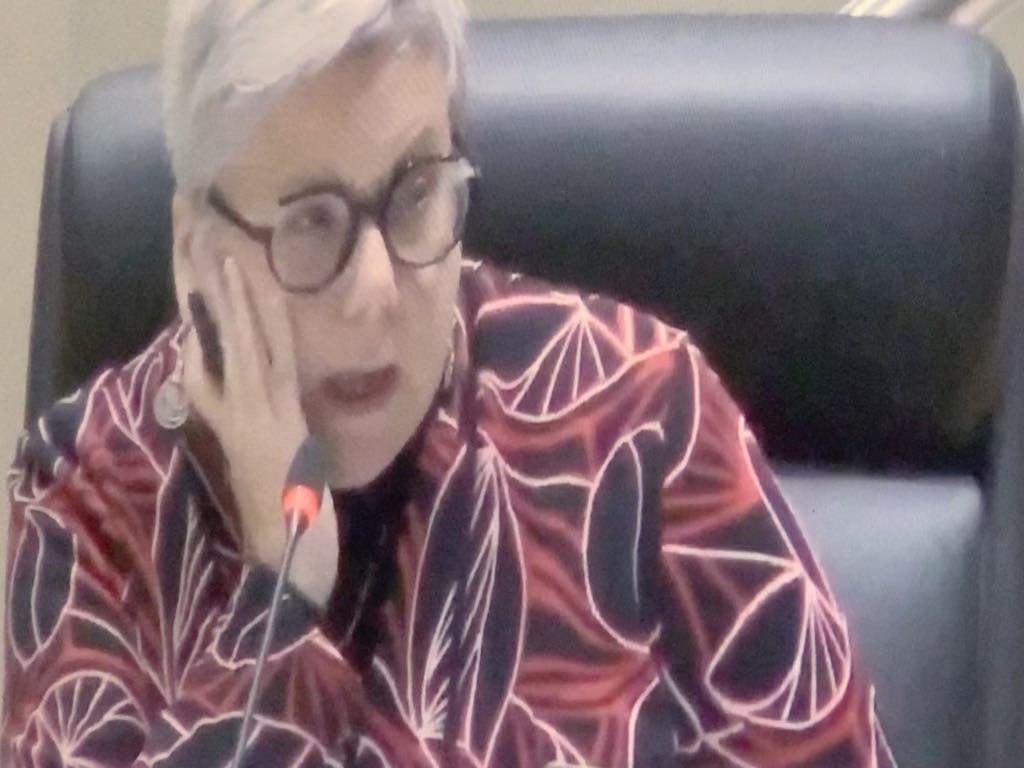Medicine Hat Admin Weaponizes another Bylaw to Silence Journalism
CAO
Ann Mitchell
“Supression Queen”
The City of Medicine Hat is once again under scrutiny for abusing municipal power, this time by enforcing a vague and punitive "Public Code of Conduct" Policy 8048 to ban a local journalist from city properties without due process (surprised? It was me, Tommy!). The move comes after Medicine Hat Owl, our independent media outlet, raised questions about the city’s administration and its handling of municipal affairs—questions that Chief Administrative Officer Ann Mitchell appears determined to suppress.
A 45-Day (or Indefinite) Ban Without Oversight
The city’s so-called "process" is a bureaucratic black hole. Upon receiving the ban, Medicine Hat Owl immediately filed a formal objection—the only recourse offered under the bylaw. CAO Ann Mitchell acknowledged the concerns but responded stating she has 30 days to complete the review, creating a 45-day limbo where the ban remains in effect without review.
During this period:
No judge, no council vote, no police complaint justifies the exclusion.
No criminal allegation or formal trespass notice has been filed.
Mitchell alone decides if her own staffer’s ban was valid — this is a clear conflict of interest.
Worse, if Mitchell rubber-stamps this decision, the ban could stretch indefinitely, barring access to:
Concerts, museums, and public archives (critical tools for journalists),
Indigenous cultural events, including ceremonies with family and friends,
Any civic engagement at city hall, silencing dissent.
"This is a personal vendetta disguised as policy," said Medicine Hat Owl. "Ann Mitchell knows she can’t defend her actions in court, so she’s exploiting a made-up process to punish critics and stall accountability. CAO should stand for Cowardly Administrative Overreach."
The message is clear: in Medicine Hat, the CAO’s whims outweigh Charter rights, and public spaces are only public if the administration approves.
A Bylaw Designed to Silence
Community Development?
Wouldn’t share his name, accused Tom of threatening him.
The Public Code of Conduct Policy (PDF link), passed without meaningful public consultation, grants city officials sweeping authority to ban individuals from municipal properties based on subjective interpretations of "disruptive" or "inappropriate" behavior. Critics argue the policy is dangerously broad, allowing administration to arbitrarily exclude citizens without formal trespass notices or criminal charges—effectively bypassing legal safeguards.
This is not the first time Medicine Hat has misused conduct policies as a weapon. In 2024 the city wasted hundreds of thousands of taxpayer dollars defending its Council Code of Conduct against Mayor Linnsie Clark, only to have the courts rule the decision to sanction her was "unreasonable." The province ultimately scrapped such bylaws altogether, with Municipal Affairs Minister Ric McIver acknowledging they had been exploited for political retaliation.
Acting Like a Tyrant
Now, the same administration has shifted its focus to the public, deploying a similarly oppressive tool to stifle dissent.
Retaliation Against Critical Journalism
Proof of Tom’s event registration.
The ban against Medicine Hat Owl followed an event at the Esplanade Arts & Heritage Centre, where the outlet was investigating the city’s plan for a Municipally Controlled Corporation (MCC). Despite holding valid tickets for this event, a city employee—later identified as a "community development" staffer—falsely accused the journalist of "threats and harassment," a claim contradicted by recorded evidence. No police charges were laid, yet the city proceeded with an exclusion under its dubious bylaw.
"This is pure retaliation," said the outlawed TrashPanda. "Ann Mitchell and her administration don’t want scrutiny, so they’re using a made-up rule to shut down questions they don’t like. They’re treating public spaces like private fiefdoms."
Charter Rights Trump Municipal Bylaws
Legal experts warn that Medicine Hat’s actions likely violate Charter protections, particularly:
Section 2(b) – Freedom of Expression: The ban targets a journalist for asking questions, a clear infringement on press freedom.
Section 7 – Right to Liberty & Security of the Person: Arbitrary bans without due process undermine fundamental justice.
Section 15 – Equality Rights: Selectively enforcing rules against critics suggests discriminatory application.
Municipal bylaws cannot override constitutional rights. Courts have repeatedly struck down local regulations that infringe on Charter freedoms. In R. v. Heywood (1994), the Supreme Court ruled that even well-intentioned bylaws restricting public access must be proportionate and justified—a test Medicine Hat’s policy would almost certainly fail.
Historical Precedents of Municipal Overreach
Medicine Hat is not alone in its abuse of bylaws/policies, but past cases have ended in costly defeats for cities:
Calgary’s Anti-Protest Bylaw (2019): The city attempted to restrict demonstrations near abortion clinics, but critics argued it violated Charter freedoms. While not fully struck down, the controversy forced amendments.
Edmonton’s Panhandling Restrictions (2006): The city’s attempt to ban "aggressive solicitation" was challenged as discriminatory against the homeless. Courts forced revisions to align with Charter rights.
Lethbridge’s Heavy-Handed Policing (2020): The city faced lawsuits after its police service unlawfully surveilled a journalist, leading to reforms and settlements.
If Medicine Hat persists, it could face similar legal repercussions.
A Pattern of Suppression
The city’s conduct reflects a troubling trend of silencing opposition. From the mayor to journalists, those challenging the administration face bureaucratic retaliation rather than accountability.
"The Charter exists precisely to prevent this kind of abuse," said a constitutional lawyer familiar with the case. "If a city can banish someone from public spaces without evidence or a fair process, none of our rights are safe."
The Medicine Hat Owl vows to fight the ban, exploring legal options to challenge the bylaw’s validity. Meanwhile, residents are left to wonder: if city hall fears scrutiny this much, what are they hiding?





